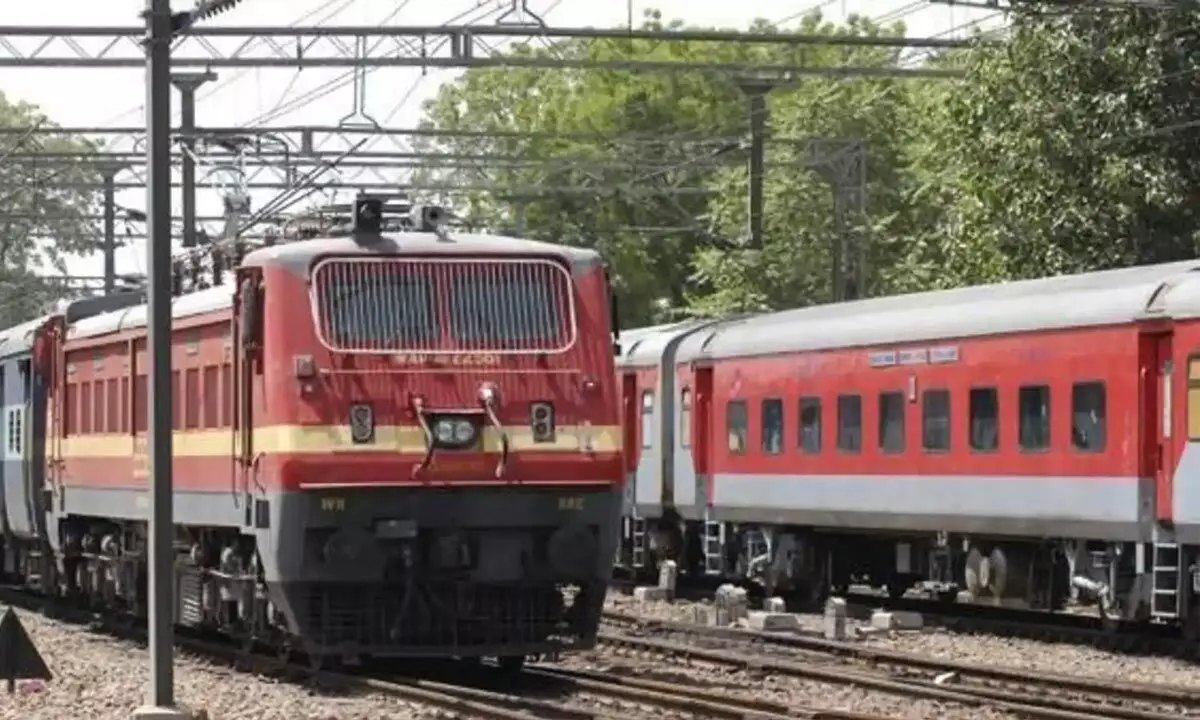Yet again, Railways’ apathy costs lives and limbs

Tall talks and vows on railway safety notwithstanding, yet No doubt, given the complexity of systems, legacy issues, etc.
Tall talks and vows on railway safety notwithstanding, yet No doubt, given the complexity of systems, legacy issues, etc., the Railways renders invaluable service to the nation. But due to their recurrence in a short time, accidents risk being looked upon by the public as well as the staff as normal, not rare. Lessons, if any, learnt from the past have not been of any use to avoid repetition of mistakes, especially those that can cost lives. It was only about five months ago that a horrific collision of three trains killed over 296 passengers in Odisha’s Balasore district on June 2. Five people lost lives when Delhi-Kamakhya North East Express derailed in Bihar’s Buxar on October 11.
Enquiries into earlier mishaps or actions on them seem to be moving at a snail’s pace.
Whatever happened to the automatic train protection and warning system, proudly touted by the Railways, that can avoid mishaps on account of human error of signal oversight or over-speeding? On Sunday night, the driver of the Visakhapatnam-Rayagada passenger train missed a red signal and hit the rear end of the Palasa train. He was also killed in the accident, said an official. With so much focus on creating new infrastructure, existing infrastructure can be thought to be facing negligence.
And that may also include overstretched, or indisposed, human resources. We keep hearing of new initiatives to acquire new technologies to prevent train collisions. India has its own, cheapest and state-of-the-art KAVACH anti-collision system. Alas! Just two per cent of the railway track in the country is covered by it.
A CAG report for the year ended March 2021 pointed out that there had been 217 train accidents between 2017 and 2021. Most of the causes were old signalling equipment, poor infrastructure, track defects, or human error. It pointed to insufficient funding or officials’ unwillingness to undertake repairs to defective or damaged tracks. What’s more, track renewal outlay was found to be cut from Rs 9,607.65 crore in 2018-19 to Rs 7,417 crore in 2019-20. One feels attention on tracks is as important as, if not more than, the introduction of Vande Bharats or Bullet Trains.
Repeated rail accidents reveal a pattern of governance deficits usually blamed on lack of adequate workforce or compromised safety measures. The Railways does not seem yet to appreciate how important it is to keep its workforce active and alert to prevent myriad ways that can cause accidents. Fail-safe protection against human negligence or inaction is not pervasive, it appears. Three accidents within five months are too many for it to ignore any aspect. Also, without any perceptible measure or action from the Railways to improve its
state of affairs, it cannot hope to attract foreign investment as desired by the Modi government.
















